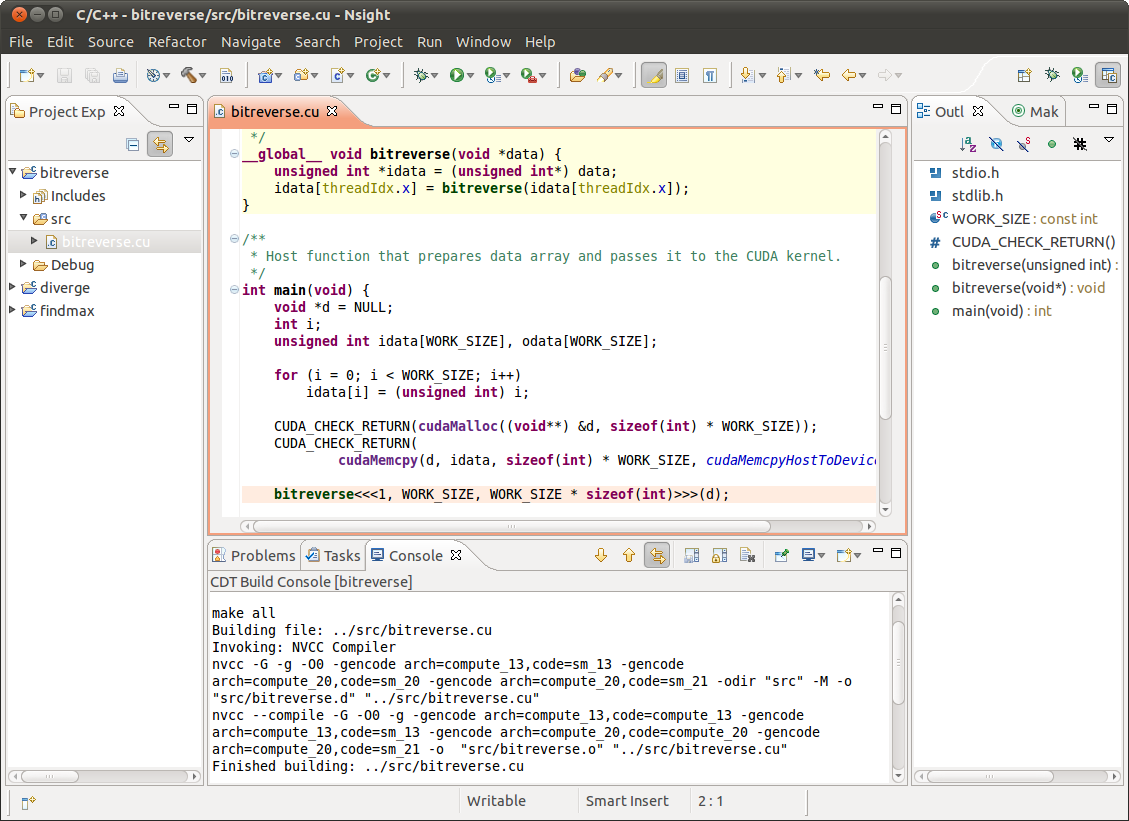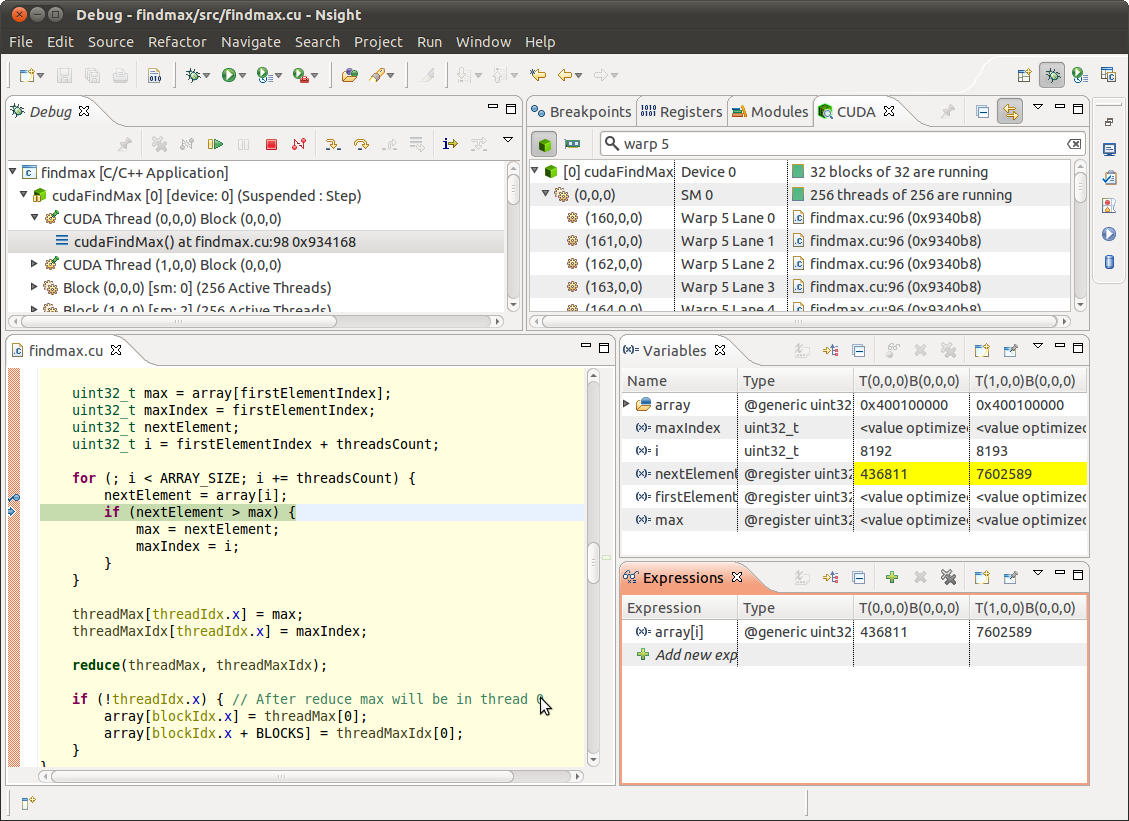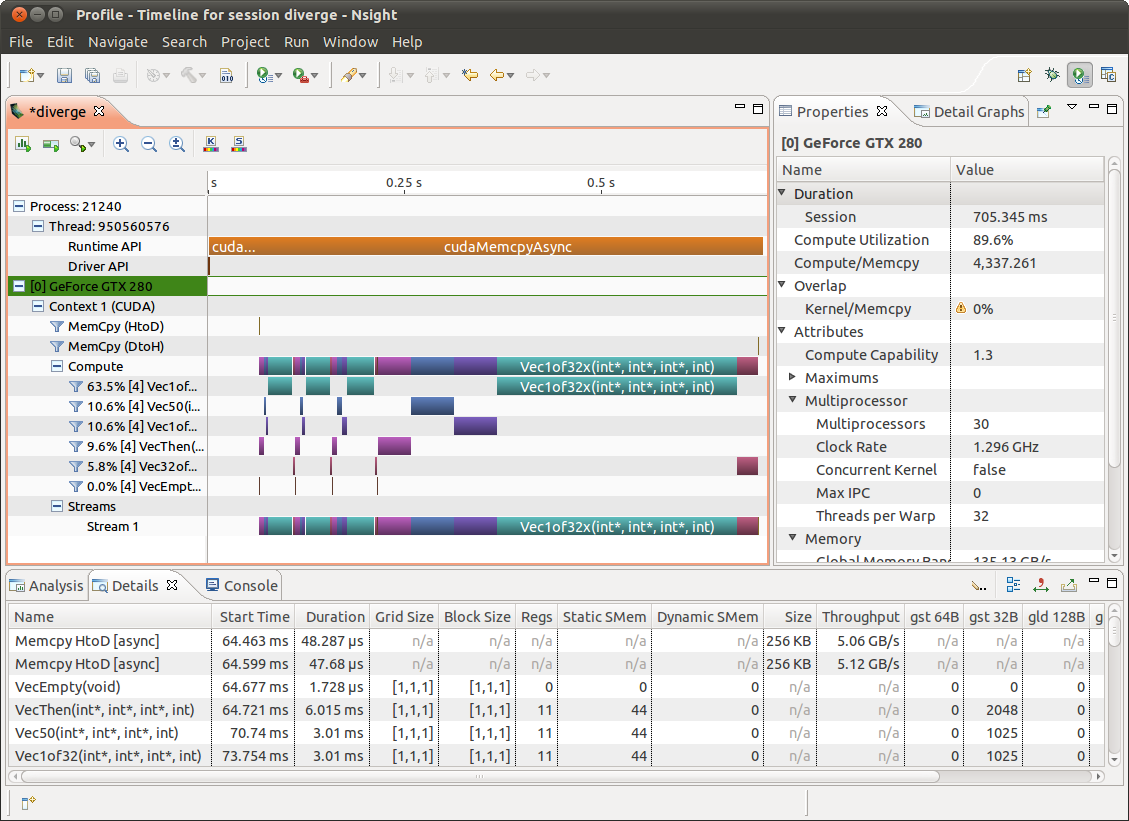Nvidia Announces Eclipse-based IDE for Linux, Mac OS X
At Nvidia's GTC event, the company announced Nvidia Nsight, Eclipse Edition, what claims to be the world’s first integrated development environment (IDE) for developing GPU accelerated applications on Linux- and Mac OS-based systems.
The new Nsight, Eclipse Edition, enables CUDA programmers to easily develop, debug and optimize the performance of GPU-accelerated applications within a familiar, highly productive IDE based on the open source Eclipse framework. Key features include:
• Automatic code refactoring – Helps convert slow sequential CPU loops into parallel GPU kernels
• Integrated expert analysis system – Provides automated performance analysis and step-by-step guidance to address application performance bottlenecks
• High-productivity development environment – Syntax highlighting and auto-completion for both CPU and GPU code helps developers program more efficiently
• Integrated code samples, online documentation – Makes it easy for developers to quickly get started
Nvidia also announced an updated version of Nvidia Nsight, Visual Studio Edition for Microsoft Windows developers. Nsight, Visual Studio Edition (formerly known as Nvidia Parallel Nsight) adds a number of new enhancements and updated features, such as local single GPU debugging, which enables CUDA developers to debug their CUDA C/C++ code natively on the hardware with any system equipped with any CUDA 1.1 or higher capable GPU.
Get Tom's Hardware's best news and in-depth reviews, straight to your inbox.
Developers can sign up to receive a free preview of Nvidia Nsight, Eclipse Edition or Nsight, Visual Studio Edition by joining the Nvidia GPU Computing Registered Developer program.
-
xtreme5 nvidia love you mannnn who is your CEO just say a bigggy thanks to him/her, from my side.. Keep it up.Reply -
Tired of proprietary NVidia stuff. Does it offer OpenCL or DirectCompute support? Didn't think so.Reply
-
-Fran- BaaahTired of proprietary NVidia stuff. Does it offer OpenCL or DirectCompute support? Didn't think so.Reply
Eclipse already has OpenCL modules for development...
http://forums.nvidia.com/index.php?showtopic=168251
Cheers! -
rjkucia BaaahTired of proprietary NVidia stuff. Does it offer OpenCL or DirectCompute support? Didn't think so.Reply
Because DirectCompute support makes total sense on Mac OS/Linux -
theoneknownasnalyd john_4The day of Windows and their proprietary Direct X monopolizing the gaming industry is almost over. OS X is now on STEAM and Linux is not far behind since both are based off UNIX it is logical and not hard to put Linux back in gaming arena.I will finally be able to drop Windows from my house once and for all and my gaming rigs will be cheaper to build since Linux is free.Reply
Wrong. Neither are Unix-based. Linux was created by Linus Torvalds, and was essentially a project inspired by Minix (a Unix-derivative). Mac OS X is partially Unix, I say this because it is a derivative of NextStep (Unix derivative), and BSD. BSD is a fork of Unix TSS 5, and has since been heavily modified into it's own OS family; as such it is incompatible with Unix applications, yet it shares similar features. As such, Mac OS X can be considered Unix-like; compatible to some extent, but not 'pure' Unix. The two major 'pure' Unix OSes are HP-UX and OpenServer 6.x. However, you are right with Valve's progress on porting to Linux. The Steam Client is being ported, as well as the version of the Source engine that shipped with Left 4 Dead 2 (as is evidenced by Phoronix's pictures and video of L4D2 running on an Ubuntu workstation). The results of the Source/Steam's port remain to be seen.



